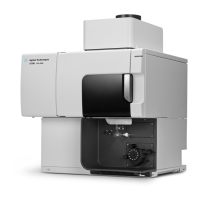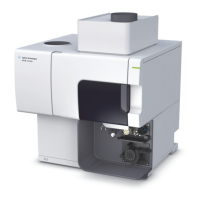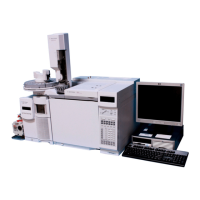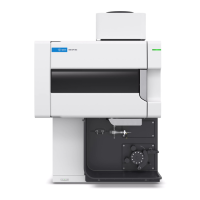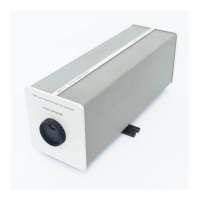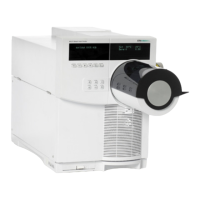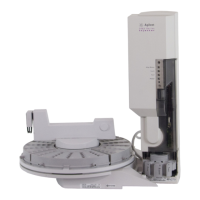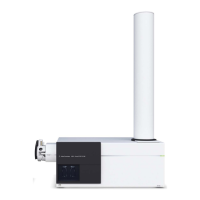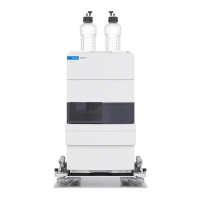Agilent 5110/5100 ICP-OES Service Manual Agilent Restricted 33
3 General Information
Instrument control
Instrument control
The Agilent 5110 ICP-OES instrument control electronics is driven by an Agilent P500 processor
(daughter board mounted on the instrument control board).
The 5110 communicates to the controlling PC via an ethernet connection consequently has a
unique Media Access Code (MAC) address that resides in the P500 processor board.
On board communications between sub system control circuits is via multiple Serial Line
Interface Protocol (SLIP) ports utilizing (RS485) and physically routed throughout the
instrument using RJ45 cables for data transfer (uniquely identified by different colors depending
on the destination and SLIP bus speed required, (Green for low speed, 38.4 kbps). High speed
SLIP runs at 1 Mbps.
The SLIP bus approach allows sub system controlling electronics to reside within close
proximity to the module being controlled thus enhancing performance and reliability, ie: analog
to digital conversion is done at point of collection (ADPOC) minimizing erroneous electronic
interferences.
Sub system modules that are SLIP bus controlled include:
• Preoptics module (slow speed)
• Polychromator and Camera module
• Peristaltic pump module (slow speed)
• Advanced Valve System (slow speed)
• Gas Control module
• Mains power module
• RF generator system including SSRF oscillator
The RF Power Supply is interlock controlled (HV enable) via the SSRF Power Supply Unit (PSU)
interface board. The PSU interface communicates with the SSRF control via a non SLIP bus.
The instrument control electronics also provide a number of external ports available to the user
including:
• 1 x RS232 port
• 2 x USB Accessory ports
• 1 x external accessory port
The Status LED indicator is an RGB feedback indicator mounted on the front of the instrument
and driven from the control board providing color coded information as to the status of the
instrument, regardless of connection to a host PC.
The instrument control board interfaces to the camera board via the camera control board. The
camera control board manages camera data aswell as controlling camera temperature, shutter
and the full illumination LED via a K10 Microcontroller.

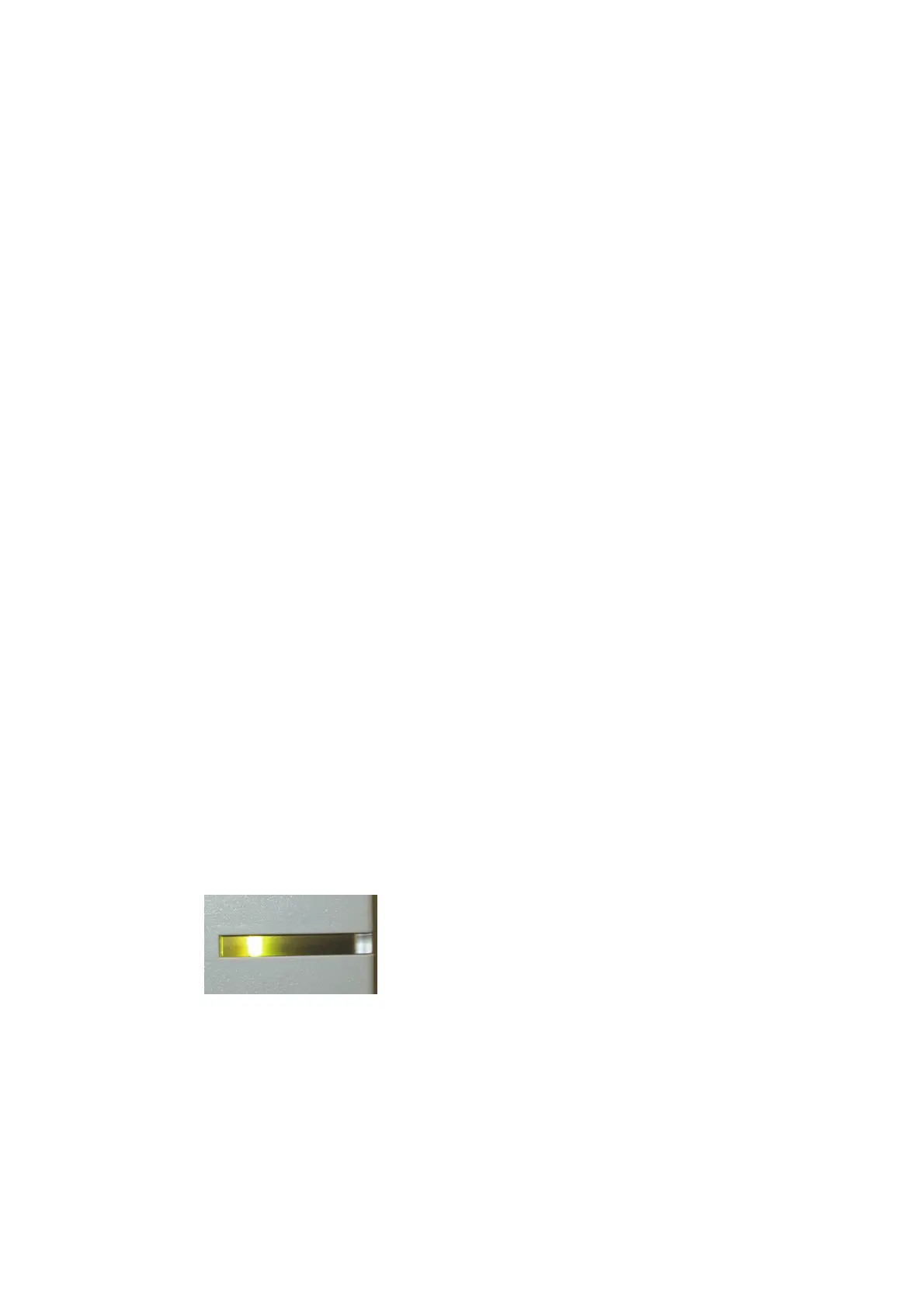